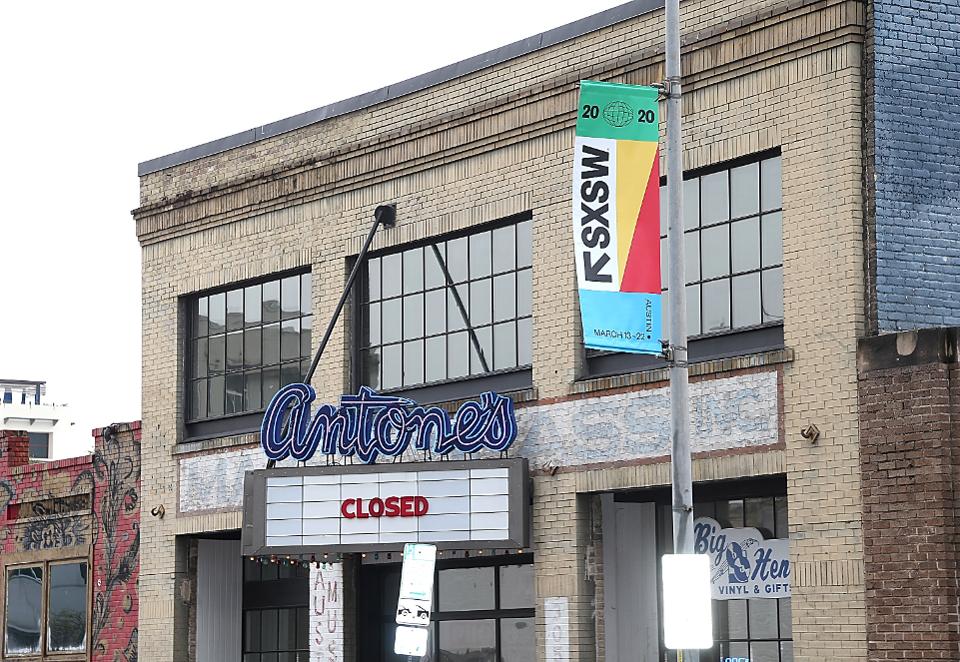Amid COVID-19 Concerns, Marketers Large And Small Are Trying To Think Ahead – Forbes

|
Getting your Trinity Audio player ready...
|
SOURCE: Marty Swant | Forbes
As CMOs scramble to cancel or postpone events and travel plans amid the COVID-19 outbreak, they have also begun to grapple with the more far-reaching implications of the emerging health crisis: How long will it take to get back to normal or is this the new normal?
Key platforms for brand engagement, in-person events have been falling like dominoes. Cannes Lions International Festival of Creativity organizers just announced October contingency plans should they need to postpone the June confab. Massive tech, music and film festival SXSW announced its cancellation on Friday, and, just prior, marketers had been pulling their own planned events: Adobe, Facebook, Google and others all nixed their own in-person conferences in favor of virtual replacements. (Other tech companies such as LinkedIn, Amazon and Twitter abandoned their plans in Austin even before the city officially stepped in to call it off.)
Just today, YouTube said it would only live-stream its annual Brandcast event in New York—which in the past has featured big-time musicians and YouTubers performing for media-buyers at Radio City Music Hall—and the Interactive Advertising Bureau plans to offer a live-stream alternative for presenters the same week as part of the Digital Content Newfronts in late April and early May.
Whether the trend continues—and how CMOs should pivot—remains uncertain.
You’re living in a time when it is all about agility because things are changing on the dime.
“You’re living in a time when it is all about agility because things are changing on the dime,” said Maryam Banikarim, marketing chief at the neighborhood-focused social media company Nextdoor, which had planned on having a presence at SXSW.
It’s no surprise that events have become a stalwart component of many marketers’ overall brand strategy—particularly business-to-business companies. That’s because they’re effective. Even in the time of social media and digital platforms, in-person events account for massive spending on the part of marketers. According to a survey conducted last year by Bizzabo, marketers allocate at least 21% of their marketing budgets to in-person events. Of this budget, most survey respondents prioritize their marketing spend for hosting events rather than attending, sponsoring, or exhibiting at events.
In terms of event-budget allocation, nearly half of businesses are spending 21% or more of their total events budget on hosting events, followed by sponsoring/exhibiting at events (30%) and attending events (19%), according to the survey, which also spotlighted a rise in investment in live events increased between 2017 to 2018. In 2018, 36% of companies were allocating more than 20% of their marketing budgets toward organizing events; last year, 50% of companies were allocating more than 21% of their marketing budgets toward events for a 39% increase, the survey found. Indeed, a majority of businesses responding to the survey—62%—planned to increase their event budgets in 2019.
That’s led to a boom in the events industry. Research firm Allied Market Research estimates that the events industry globally across industries was worth $1.1 trillion in 2018 and could balloon to $2.3 trillion by 2026—if the estimated compound annual growth rate continues at 10.3%.
SAP had planned an events-loaded March, including a presence at SXSW, but in the face of the outbreak, CMO Alicia Tillman has been grappling with contingency plans. Risks to employees, customers and the communities where the events were supposed to take place became paramount. The company added cleaning measures, but, after monitoring health officials’ guidance, they ultimately decided to cut all events this month.
A large event in Las Vegas for its procurement business, Ariba, has now been switched to a “virtual experience” later next week, and its Fusion conference for its expense software Concur, with an expected 2,000 people, also has been switched to a virtual version.
To inform its decision-making, SAP used its own data to better understand how various industries were approaching travel. For example, the company reviewed data for January and February in Concur, which showed an overall volume of cancellations that was steady through January. Tillman said SAP also saw a spike in air travel cancellations in the fourth week of last month, while flight bookings decreased 20% year-over-year.
“Travel is absolutely a leading economic indicator so our ability to have access through that allows you to see this immediate heat map,” she said. “It was quite extraordinary.”
SAP also used customer data to decide if was better to cancel or postpone certain events. For its X4 conference with Qualtrics customers scheduled for this week in Salt Lake City, the company surveyed around 16,000 confirmed attendees earlier this month to see if they would rather get a refund or simply reschedule. Within 24 hours, 85% of 1,800 responses said they’d prefer to move it back to a later date. As a result, it’s now been tentatively rescheduled for the fall.
“I think people are fearful short-term,” Tillman said. “But to me, that doesn’t necessary signal that they’re concerned over the long term if you have the vast majority saying hold onto my investment.”
In the past week, other events—and the CMOs who invest in them—also have quickly pivoted to digital. Even before SXSW made its official decision to cancel, The Female Quotient—an organization aimed at improving gender equality—decided to have a three-day online event this week with the same lineup of speakers. According to FQ Founder Shelley Zalis, partners and sponsors like Adobe, Google Cloud, and Shoptalk had already begun canceling their in-person operations but were interested in sponsoring something digitally. She also saw some benefits to a virtual discussion, such as making it global rather than only for people at SXSW.
The events industry globally across industries was worth $1.1 trillion in 2018 and could balloon to $2.3 trillion by 2026.
“We realized that the equality conversation can’t stop,” Zalis said. “It just keeps goes and needs to continue, so we decided to do it before South By (Southwest) canceled and talked to all of our partners about it.”
That doesn’t mean The FQ and others aren’t hoping to get some money back.
“I think this is a big hit for everybody and it’s an uncontrollable moment,” she said. “I think South By will do the right thing and help everyone that has supported SXSW from sponsoring. And (we’re) hoping all the deposits that were put down on location, they will work with us as well in some way—whether it’s pushing it toward next year or doing the refund.”
Earlier this week, The One Club also announced plans to alter its annual awards show and Creative Week where 1,000 were expected to attend. According to CEO Kevin Swanepoel, the organization ended 2019 with “the best year we ever had with entries and participation.” But after an emergency board meeting last Friday, it decided to change plans as well. The awards will still take place—thanks to the help of a production company that will live stream them—but The One Club is now working through how to take presentations from Creative Week and sure them online. And like Zalis, he said it could also be a good thing for getting out the work and ideas to a broader audience by making it more consumer-facing.
“We will see a hit to the bottom line,” Swanepoel said. “But The One Club is a nonprofit and us putting people over profit is more important for us, the creative community are our constituents.”
Kenny Nguyen, founder and CEO of the 25-person agency ThreeSixtyEight, said some experiential marketing clients have been pulling away “because there are so many unknowns” about when the worry will subside. While only about 15% to 20% of the Baton Rouge, Louisiana-based agency work is experiential marketing—Nguyen said much of that is focused on longer term projects. Meanwhile, Nguyen said ThreeSixtyEight is looking for other ways to support clients, because “if you’re good at experiential, you’re good at content in general.”
“We don’t put our eggs in the experiential basket,” he said. “But if we did, I’d be sweating.”
Other experiential agencies are also helping clients to fill gaps left by the loss of in-person interactions. While brands are losing out on live events, so are consumers, noted Victoria Wells, a strategy director at Dotdotdash. She said the Portland, Oregon-based firm has been advising clients to look at online communities such as Twitch, and noted that the Italian fashion brand Armani recently held a fashion show in an empty theater to engage with consumers without putting them at risk.
“One thing I think brands should step up more with their consumers in addressing that need,” she said. “You can’t connect when you’re not hanging out with your friends.”
Other agencies are looking to do smaller, regional events. WPP, the London-based agency holding company, is looking to host a series of smaller events in key U.S. marketers such as New York, Atlanta, Chicago, and Los Angeles, said WPP CMO Laurent Ezekiel. He said the agency is “not redeploying our efforts, but we’re redeploying our focus in the short term.”
While some CMOs are busy planning—or now in many cases unplanning—events, others are trying to calm wary travelers. In an email to customers on Monday, svp and CMO Ryan Green addressed flight concerns and explained how airplanes are cleaned. He wrote that the crews spend six or seven hours each night cleaning aircrafts but have begun using “EPA approved, hospital-grade disinfectant in the lavatories and an interior cleaner in the cabin.” Green added that each plane is also equipped with a “High Efficiency Particulate Air filter, which filters out recirculated air onboard each plane to remove airborne particles. HEPA filters are also used in hospitals to provide patients with clean air.”
Other top marketers paying close attention to supply chains and other operations to see how it impacts each industry as a macro level. According to Joyce Kim, CMO and chief digital officer of semiconductor maker Arm, the industry is “sort of waiting to see when the signs of normality come back.”
What we’re looking at is really taking it on a day by day basis and a country by country basis and in some cases city by city and event by event basis.
At Procter & Gamble, Chief Brand Officer Marc Pritchard said the company is following what experts suggest. And while the CPG behemoth didn’t plan to have a big presence at SXSW, the company is keeping close watch on the 2020 Tokyo Olympics, where it will have a much bigger marketing presence both on the ground in Japan and through various commercial campaigns. But for now, Pritchard said the company is letting employees decide what they feel comfortable with when it comes to travel.
“What we’re looking at is really taking it on a day by day basis and a country by country basis and in some cases city by city and event by event basis,” he said.
For Momentum, an agency that creates experiences for brands, global clients where travel bans are in place are pushing to postpone—not cancel—their events. The company had been with clients not just on work for SXSW but also for the tennis tournament Indian Wells, and Premier League soccer. However, Momentum CMO Kevin McNulty brought up a different point: if COVID-19 concerns clear up, will everyone create a “mad rush” to engage with consumers? He thinks that could happen, suggesting that marketers eager to reach consumers before the end of 2020 might lead to a land grab in the fourth quarter.
“It’s a nice, quiet collaborative calendar when everything is fine,” he said. “But you throw something like Coronavirus in, what happens?”
Related: Events canceled due to coronavirus: How to get your money back


